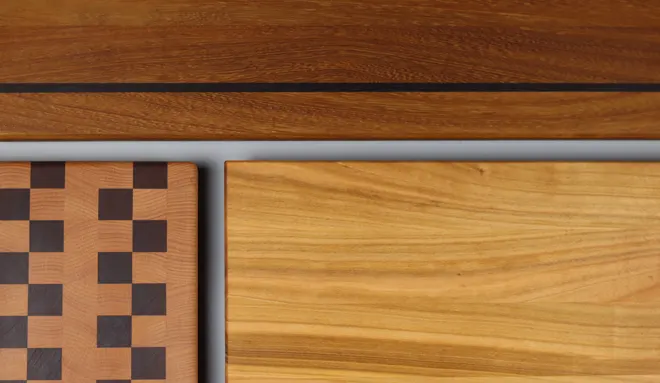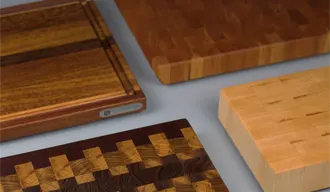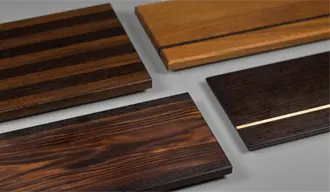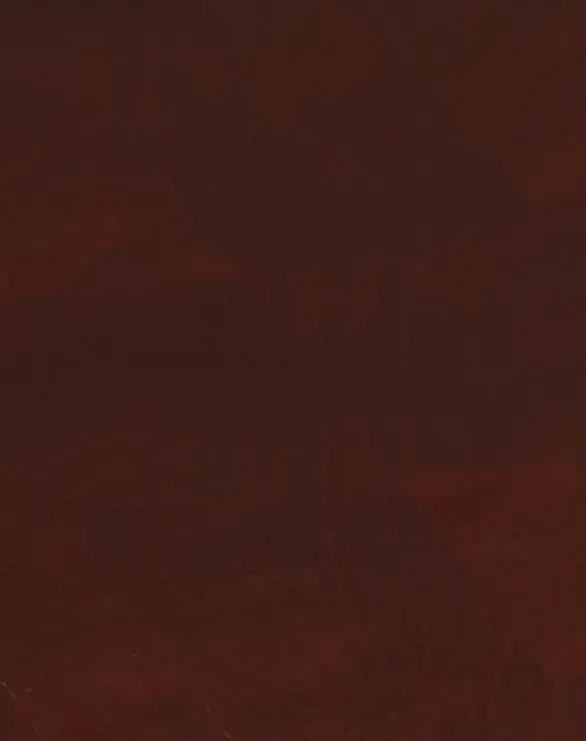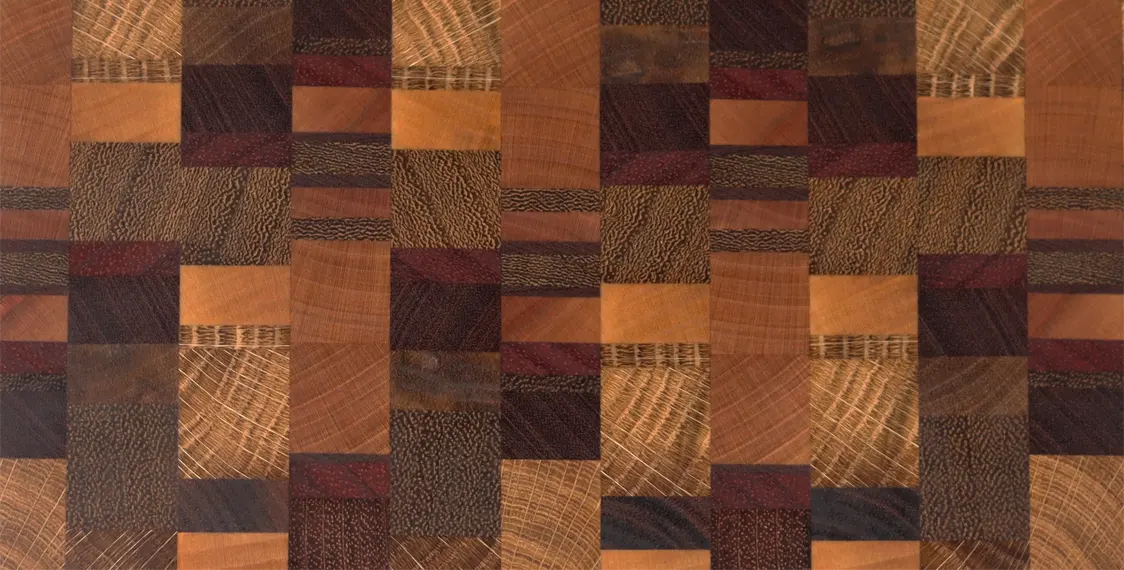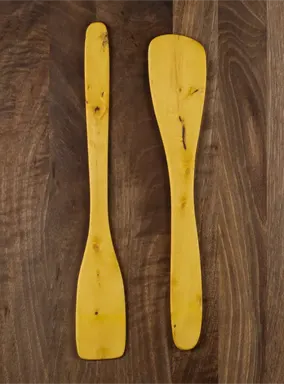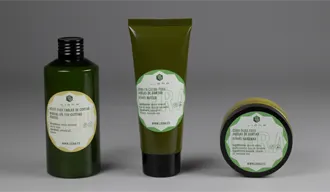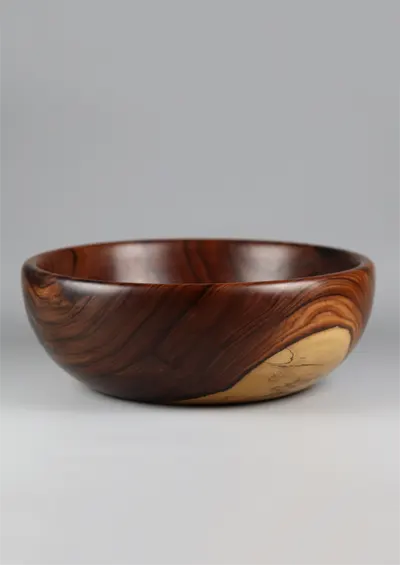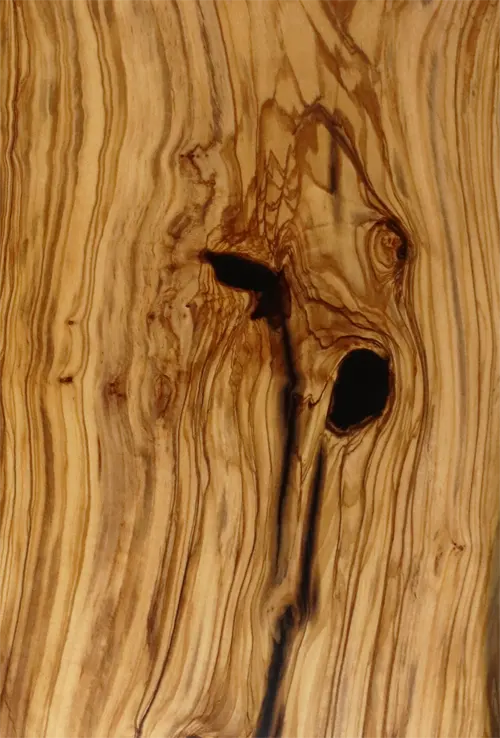Zebrano Wood: Uses and Characteristics
Zebrawood, also known as zebrawood, is famous for its unique and striking appearance, with streaks that mimic the stripes of a zebra, hence its name.
This wood, which comes from trees of the genus Microberlinia originating in West Africa, is highly valued in luxury carpentry and in the manufacture of decorative and functional objects.
The following is an analysis of the most common properties and uses of Zebrawood.
What is Zebrano Wood?
Zebrawood is a tropical wood that comes mainly from Central Africa, from countries such as Cameroon and Gabon.
It is characterized by its light brown or cream color, with dark and striking veins that vary from dark brown to almost black.
This wood is distinguished not only by its visual appearance, but also by its hardness and strength, making it an ideal choice for projects that require both durability and aesthetics.
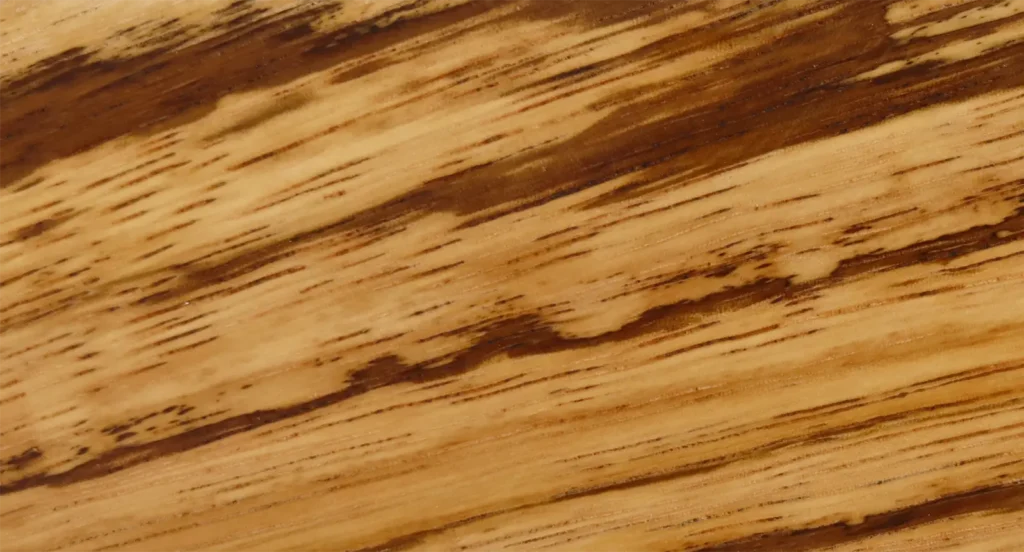
Properties of Zebrano Wood
Hardness and Density
Zebrawood is quite hard, with a density ranging between 700 and 800 kg/m³. This hardness makes it resistant to impact and wear, which makes it an excellent choice for floors and furniture that must withstand intensive use.
Dimensional Stability
Zebrano exhibits moderate stability, which means that it may experience some shrinkage or expansion when exposed to changes in humidity, although it is generally manageable with proper drying prior to use.
Unique Appearance
Zebrano’s most distinctive feature is its visual appearance. Its dark, pronounced veins, arranged in linear or irregular patterns, create a striking contrast that makes it a popular choice for projects seeking a bold, modern aesthetic.
Wear Resistance
Zebrano’s hardness gives it good wear resistance, making it suitable for applications where a durable surface is needed, such as frequently used flooring and furniture.
Technical characteristics of zebrawood
| Property | Value |
|---|---|
| Scientific name | Microberlinia brazzavillensis |
| Origin | Central Africa (Cameroon, Gabon, Congo) |
| Density (12% humidity) | 790–800 kg/m³ |
| Janka hardness | 1.830 lbf (8.160 N) |
| Volumetric shrinkage | 0,55% |
| Tangential contraction | 10% |
| Radial contraction | 8,8% |
| T/R ratio | 1,3 |
| Dimensional stability | Moderate |
| Natural durability | Moderately durable against fungi and insects |
| Heartwood color | Golden yellow with dark brown or black veins |
| Sapwood color | Off-white or cream |
| Texture | Thick, with open pores |
| Fiber | Intertwined or loosely intertwined |
| Workability | Moderate; requires sharp tools and pre-drilling |
| Common uses | Luxury furniture, decorative veneers, musical instruments, interior trim, turned objects |
Uses of Zebrano Wood
Cutting Boards and Kitchen Utensils
Although not as common, the use of Zebrano wood for kitchen countertops is becoming more and more common. Its visual appeal makes it a luxurious option for those looking for more than just functionality in the kitchen.
Luxury Furniture
Zebrano wood is widely used in the manufacture of high-end furniture due to its exotic appearance and durability. It is common to find this wood in tables, desks, shelves and decorative furniture looking for a touch of sophistication and originality.
Decorative Plates
Zebrano is often used to make decorative veneers, which are applied to furniture and interior paneling. These veneers take advantage of the wood’s characteristic grain to create visually striking surfaces, ideal for interior design projects.
Musical Instruments
Its stability and strength make it a suitable choice for the manufacture of musical instruments, such as guitars and drums, where both unique aesthetics and adequate acoustic resonance are sought.
Zebrano Wood Advantages and Considerations
Advantages
- Exotic Appearance: Zebrano wood is prized for its unique appearance, with striking grain that adds a bold, modern touch to any project.
- High Hardness: Its density and hardness make it resistant to wear and tear, which makes it an ideal choice for floors and furniture that must withstand intensive use.
- Good workability: Although hard, Zebrano is relatively easy to work with suitable tools, which facilitates the manufacture of furniture and veneers.
Considerations
- Limited availability: Due to its exotic origin and the overharvesting of some zebrawood species, its availability in the market may be limited. In addition, unsustainable harvesting in some regions has led to trade restrictions, which may further increase its price.
- High Price: The combination of its unique appearance and limited availability makes Zebrano an expensive wood, so it is used primarily in high-end projects.
- Grain Variability: Zebrano grain can be interlocked, which can make planing difficult in some cases, and also means that the finish can vary from piece to piece.
Conclusion
Zebrawood is an exceptional choice for those seeking a combination of durability, strength and striking aesthetics in their cutting boards. Its unique appearance, with dark, contrasting grain, makes it a preferred choice in luxury furniture, decorative veneers and even musical instruments.
However, its limited availability and high price mean that zebrawood is mainly used in exclusive projects.
Our Zebrano wood products
(Currently no products)
FAQ: Frequently Asked Questions About Zebrawood
What is zebrawood and where does it come from?
Zebrawood, also known as zebrano, comes from the Microberlinia brazzavillensis tree, native to Central Africa, especially countries like Cameroon, Gabon, and Congo. It is recognized by its distinctive pattern of dark grain on a light background, similar to a zebra’s coat.
What are the physical properties of zebrawood?
Zebrawood is dense and semi-hard, with a density ranging from 790 to 800 kg/m³ at 12% moisture content. It has a Janka hardness of 1,830 lbf (8,160 N), making it wear-resistant and suitable for applications requiring durability.
What is zebrawood used for?
Due to its exotic appearance and durability, it is used in the manufacture of high-end furniture, decorative veneers, musical instruments, interior trim, and turned objects. Its grain pattern makes it especially prized in decorative applications.
Is zebrawood suitable for outdoors?
Although zebrawood has moderate durability against fungi and insects, it is not the recommended choice for exterior applications without proper protective treatments. For outdoor use, sealants and regular maintenance are recommended.
What is the color and appearance of zebrawood?
The heartwood of zebrawood is golden yellow with dark brown or black veins, while the sapwood is whitish or creamy. This color contrast gives it a unique and striking appearance, highly valued in design and decoration.
Is zebrawood easy to work with?
Zebrawood has moderate workability. Its interlocking grain can present challenges during sawing and planing, requiring sharp tools and pre-drilling for nails and screws. However, it glues easily and produces high-quality finishes.
Is zebrawood insect resistant?
It has moderate resistance to fungi and insects, making it suitable for a variety of interior applications. However, for use in environments prone to biological attack, additional protective treatments are recommended.
What care does zebrawood require?
To maintain the beauty and durability of zebrawood, it is recommended to apply protective finishes such as oils or varnishes, especially in environments with high humidity. It is also important to avoid direct exposure to intense sunlight to prevent discoloration.
How does humidity affect zebrawood?
It has moderate dimensional stability, with a volumetric shrinkage of approximately 0.55%. This means it can experience size changes with variations in humidity, so proper drying before use and maintaining stable environmental conditions are essential.
Is zebrawood sustainable?
Its sustainability depends on its origin and forest management practices. It’s essential to ensure it comes from responsible and certified sources to ensure its sustainability and minimize its environmental impact.
Otras entradas del blog
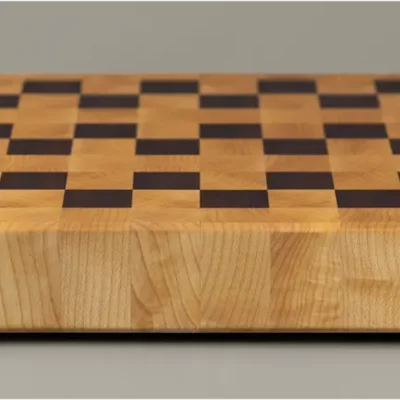
What is an end grain cutting board?
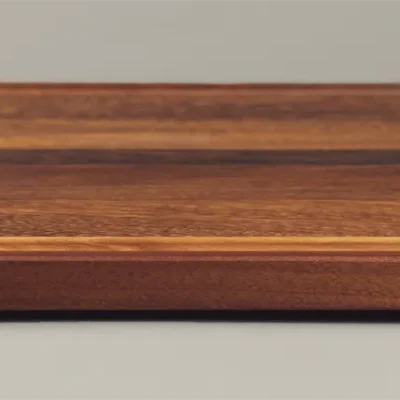
Barbecue boards, what to take into account
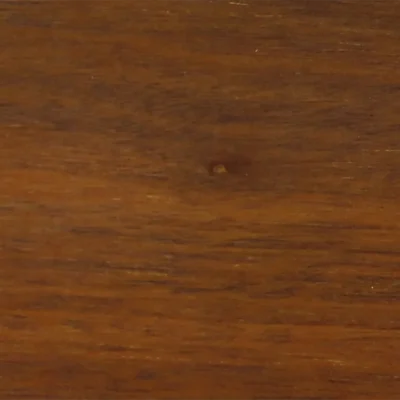
Outdoor wood: a complete guide
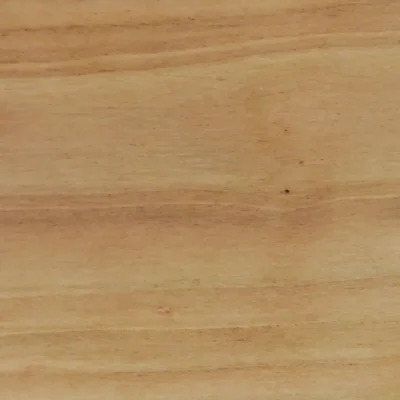
Cherry Wood: Uses and Characteristics
Nuestras tablas de cortar:
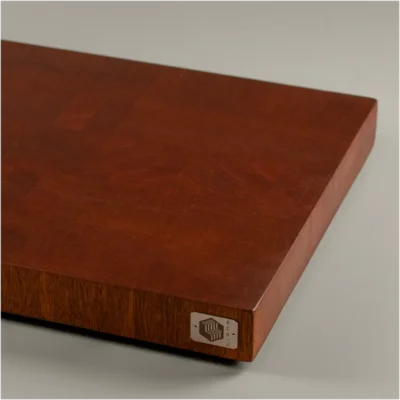
sapele end grain
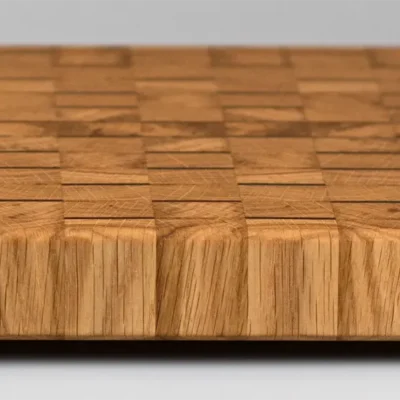
Summer endgrain Cutting Board
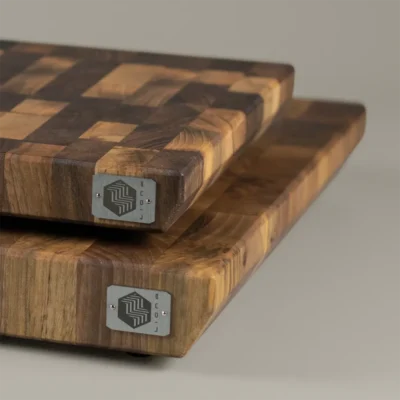
Pura
Walnut walnut butcher block
(copia)
Pura
Walnutwalnut butcher block
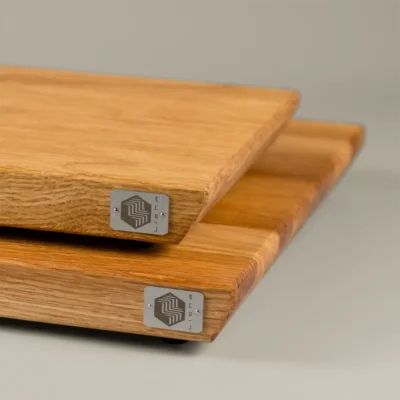
Linea
Oak oak cutting board
Linea
Oakoak cutting board
